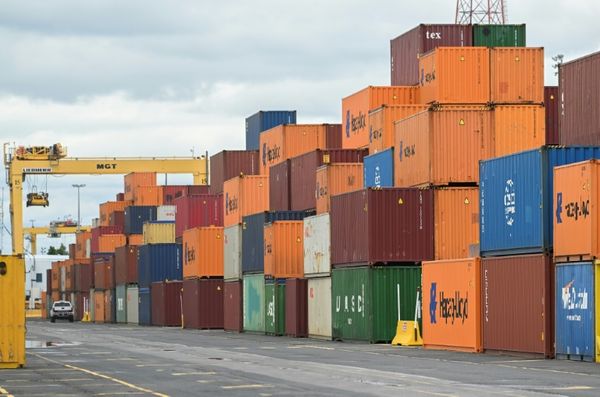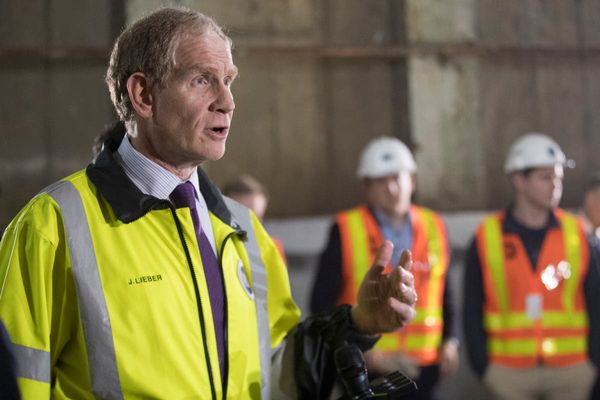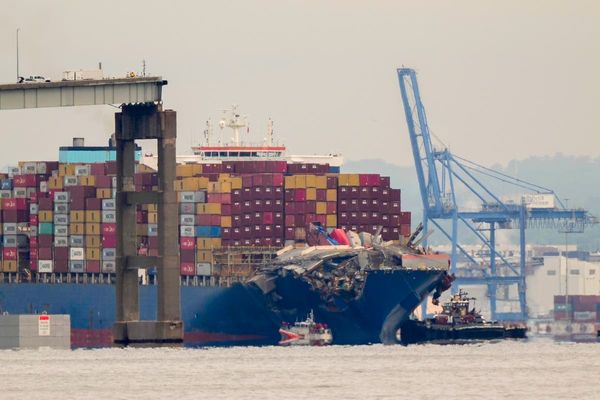
So far, the public faces of the new space race have been billionaires like Jeff Bezos and Richard Branson joyriding around in rockets, having maybe the most expensive midlife crises ever. But behind the scenes, big tech is thinking more seriously about the first non-Earth production lines.
For some startups, the most pressing questions in manufacturing right now are: how do you build computer parts, harvest stem cells or produce pharmaceuticals while in space?
A group of founders say it’s already happening, at least at the research level. Nasa has given a $2m grant to scientists who want to see if zero-gravity conditions can help produce new stem cell and gene therapies. The defense company Northrop Grumman partnered with a startup that aims to produce semiconductors in space. By the end of this decade, one expert says, we’ll be using items that contain some element that was built off of Earth.
Why go through the trouble of “off-planet manufacturing”? Jeff Bezos told CBS’s Gayle King that heavy manufacturing and air-polluting industries could operate away from Earth. “This sounds fantastical … but it will happen,” Bezos said.
Advocates say that certain conditions in space, including the lack of gravity, low temperatures and near-perfect vacuum, mean that certain ingredients, such as crystals, can be made at a better quality than on land.
“Space is a much better place to do almost any industrial process,” said Joshua Western, CEO of Space Forge, an in-space technology manufacturer based in Wales. “We live on a planet where we’re weighed down by gravity. We made ovens, refrigerators and the vacuum pump to help manufacture products on earth, but if you go to space, you get those benefits for free.”

Pharmaceutical companies are betting that new drugs can be made in space. Merck works with the International Space Station (ISS) to produce proteins in zero-gravity. Astronauts conducting experiments for the pharmaceutical giant have found that crystals grown for the production of its oncology drug Keytruda are smaller and more uniform than the ones grown on earth.
Researchers at Bristol Myers Squibb have said they’re testing how to use resources built off-planet to make drugs easier to store. Robert Garmise, associate director of material science and engineering at BMS, told the trade publication Pharma Voice that the company was “involved in a number of different therapeutic areas” such as immunology, fibrosis, cardiovascular disease and neuroscience.
Kevin Engelbert, manager of Nasa’s In Space Production Applications portfolio, told the Guardian that the agency had collaborated withcommercial partners to enable off-Earth manufacturing since about 2016. The goal is to develop a “low-earth orbit” (Leo) economy that will strengthen the US’s leadership in the tech world. But the next phase of space capitalism will not be seamless.
In July, the California-based startup Varda Space Industries launched a capsule into the earth’s orbit. It was intended to be, as the tech news site Gizmodo put it, a “space drugs factory”, which autonomously grew crystals of the drug ritonavir, an anti-viral medication used to treat HIV.
Just as the capsule was due to land at a Utah airbase, Tech Crunch reported, the Federal Aviation Administration and the US air force denied Varda’s request to return to earth.
In a statement, a spokesperson for the FAA said that Varda had not secured a re-entry license before rocketing its vehicle into space.
“The FAA denied re-entry license application on Sept 6 because the company did not demonstrate compliance with the regulatory requirements,” the spokesperson added. Varda formally requested that the FAA reconsider its decision on 8 September; the request is pending. Representatives for Varda declined a request for comment.
This, though, is just the beginning. In 2031, the ISS will be decommissioned and plunged to a watery grave at the bottom of the Pacific. After that, Nasa will rent space on commercial space vehicles instead. It’s a move the agency says will save $1.3bn in 2031 alone.

S Sita Sonty is the CEO of Space Tango, a company that works with the ISS to provide facilities that support research, development, and manufacturing in microgravity. She says as more privately owned shuttles sprout up, the demand for in-orbit production will increase.
“Imagine there’s one office park now where all of the work and research has historically been performed,” she said. “After 2030, there may be four or five of them. That gives us opportunities to leverage research and development in microgravity, and perform more of it at scale in orbit.”
Companies that produce off-planet say that the number of products produced in space will ramp up by the end of the decade, since they will no longer need to go solely through the ISS to get to space. The more privately owned shuttles in space, the larger the opportunities for off-earth factories.
Humans can replicate some of space’s conditions on earth – Nasa has its own zero-gravity research facility in Cleveland, Ohio. But it costs a lot of money to build that kind of infrastructure.
“With the advent of more commercial space stations, the price and cost of going to space will come down significantly, and so will performing this kind of work,” Sonty said. “The more trips we go, the more we can deposit stem cells and drug samples to see what they do in orbit. It’s not going to be too long when we will see applications that are commercially viable.”
Shortly after the launch of their currently stuck drug factory, Varda’s co-founders spoke to CNBC about their lofty plans for manufacturing pharmaceuticals in space.
Will Bruey, Varda’s CEO, said the plan was to launch four capsules into space every six months, starting with the one which is now held in orbit. It is paramount that one of those four missions succeed, Bruey said, and if not, “then, quite frankly, we don’t deserve to have a space company any more”.







